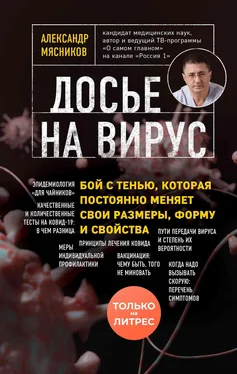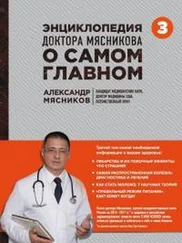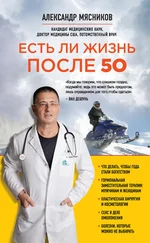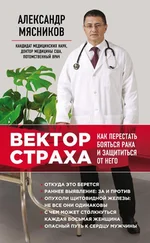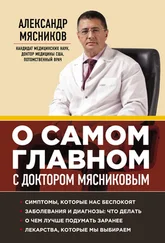Author Affiliations Article Information
JAMA. Published online May 26, 2020. doi:10.1001/jama.2020.8917
related articles icon Related
Articles
author interview icon Interviews multimedia icon Multimedia
As the SARS-CoV-2 (severe acute respiratory syndrome coronavirus 2) pandemic persists across the US and the world, the spotlight on vaccine science has never been more intense. Researchers across the globe are working rapidly to produce a potential vaccine, and 7 candidates are already in clinical trials.1 Operation Warp Speed, the vaccine development project announced by President Trump, has advocated for a vaccine to be made available in the US by the beginning of 2021.1 But for scientists and physicians, the term “warp speed” should trigger concern. Good science requires rigor, discipline, and deliberate caution. Any medical therapy approved for public use in the absence of extensive safeguards has the potential to cause harm, not only for COVID-19 prevention efforts and vaccine recipients, but also for public trust in vaccination efforts worldwide.
Long before coronavirus disease 2019 (COVID-19), vaccine hesitancy and refusal were increasing.2 In 2019, the World Health Organization listed vaccine refusal as one of the top 10 global health threats.3 Pediatricians, in particular, frequently encounter resistance to childhood vaccinations, and as a result, outbreaks of measles and other vaccine-preventable illnesses, such as pertussis and influenza, have increased in recent decades.4
Much of the distrust of vaccines (and, by extension, the physicians and scientists who promote them) is driven by widespread misinformation from both online sources and skeptical communities.2,4 The belief that vaccines cause harmful adverse effects like autism has persisted despite carefully designed research studies that have refuted such claims. When physicians promote vaccines, they do so knowing that the benefits far outweigh the minimal risks, and that each vaccine has been studied extensively to establish its safety profile. Yet vaccine opponents frequently accuse physicians and researchers of failing in this respect, citing financial or political interests as the motivation for promoting vaccines. As the search for a SARS-CoV-2 vaccine accelerates, physicians and scientists who wish to maintain the public’s trust must not promote a vaccine that has either bypassed established safety standards or is open to a serious charge of having done so.
There is grim historical precedent for allowing expediency to rule vaccine development. In 1955, the inactivated polio vaccine developed by Jonas Salk was declared “safe, potent, and effective” following the largest public health experiment in the nation’s history, involving more than a million schoolchildren.5 Within weeks, however, the miracle vaccine intended to end the scourge of polio stood accused of causing it. Years in development, the Salk vaccine had been rigorously tested in preparation for the massive trials. But the very success of these trials led to an understandable outcry for the immediate, but premature, public release of the vaccine. Five pharmaceutical companies were given Salk’s formula and left to produce the vaccine without significant oversight. As speed took precedence over caution, serious mistakes went unreported.5 One company, Cutter Laboratories, distributed a vaccine so contaminated with live poliovirus that 70 000 children who received that vaccine developed muscle weakness, 164 were permanently paralyzed, and 10 died.6 Not surprisingly, that incident forced the federal government to directly intervene. The legacy of this event is a regulatory landscape in which vaccines undergo thousands of tests to ensure their safety and effectiveness.6
Yet on rare occasions, this vital evidence-based process of vaccine development and testing has still been ignored. In 1976, concerns about the emergence of a new swine flu strain reminiscent of the lethal 1918 version led President Gerald Ford to convene a panel that recommended a government-backed mass vaccination program.7 Poorly conceived, the attempt to vaccinate the US population at breakneck speed failed in virtually every respect. Safety standards deteriorated as one manufacturer produced the incorrect strain. The vaccine tested poorly on children who, depending on the form of vaccine tested, either developed adverse reactions with high fevers and sore arms or did not mount an immune response at all. Reports emerged that the vaccine appeared to cause Guillain-Barré syndrome in a very small number of cases, a finding that remains controversial, but added to the early momentum of the antivaccine movement.7 Once again, the pressure to rapidly distribute a vaccine undermined the scientific integrity of the process and damaged public trust.
COVID-19 has created intense concern and uncertainty in the US and throughout the world. There are immense public and political pressures to develop a new vaccine, a process that typically takes years, not months. But as history warns, these pressures must not supplant rigorous scientific practice. Proceeding stepwise through the phases of clinical trials is the ethical standard for investigations involving human research participants. Adherence to the scientific method is the only way to safeguard against a SARS-CoV-2 vaccine that is ineffective, or worse, carries unacceptable adverse effects.
Failing to abide by standards of safety and scientific rigor during the COVID-19 crisis will fuel the argument that physicians and scientists cannot be trusted. Vaccination rates, which are declining due to widespread concern about visiting clinicians’ offices, could further decrease. The US could see resurgences of many vaccine-preventable illnesses, and inevitably, massive increases in avoidable deaths and irreversible outcomes.
There are, however, reasons to hope that these scenarios will not come to pass. In response to past failures, vaccine development in the US is subject to increased regulatory oversight designed to protect against substandard practices. Technological advances permit the rapid communication of adverse events in clinical trials, and the understanding of the genetic factors influencing immunologic responses has increased. To proactively address safety concerns, these and other safeguards should be clearly communicated to the public during the vaccine development process.
Both the public and the scientific community want an effective and safe intervention to prevent COVID-19. The morbidity, mortality, and societal and financial devastation that SARS-CoV-2 has caused throughout the world will have wide-reaching consequences for almost every aspect of life for years to come. Nothing should dampen the ardor of researchers worldwide in the aggressive search for effective treatments. In this unprecedented crisis, novel trial designs, such as those that include challenge studies, should be carefully considered.8 But what cannot and must not be allowed is for desperation to result in the suspension of scientific principles and ethical research values. Physicians should not administer inadequately vetted vaccines; researchers should not endorse them without sufficient data. The scientific community has only one chance at winning public acceptance of a SARS-CoV-2 vaccine. The likelihood of achieving that goal will depend on convincing evidence of vaccine safety and efficacy.
Конец ознакомительного отрывка
Купить книгу
